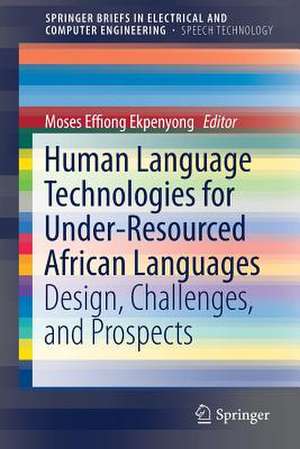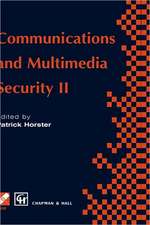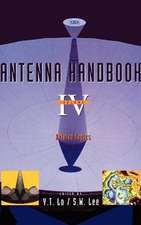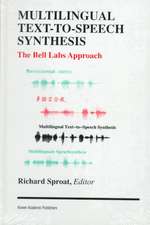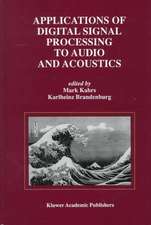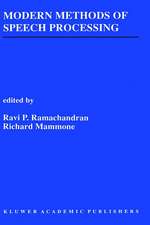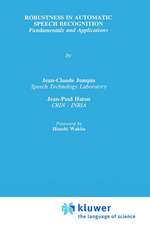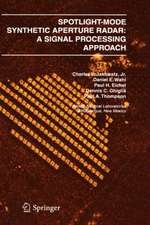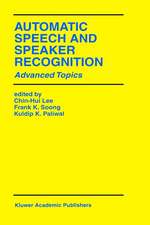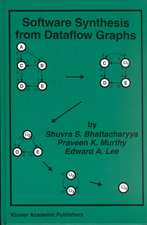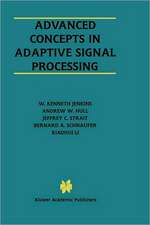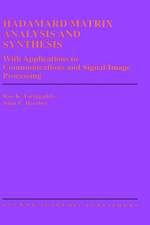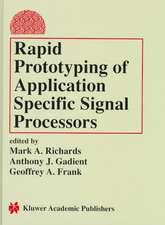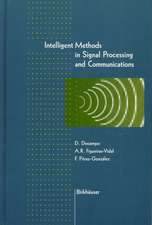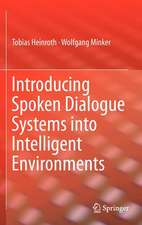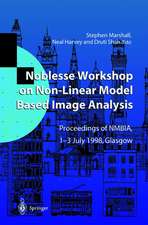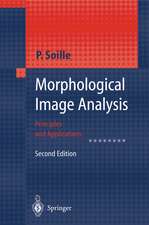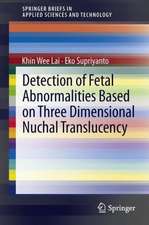Human Language Technologies for Under-Resourced African Languages: Design, Challenges, and Prospects: SpringerBriefs in Speech Technology
Editat de Moses Effiong Ekpenyongen Limba Engleză Paperback – feb 2018
Din seria SpringerBriefs in Speech Technology
-
 Preț: 357.70 lei
Preț: 357.70 lei -
 Preț: 344.64 lei
Preț: 344.64 lei -
 Preț: 337.37 lei
Preț: 337.37 lei -
 Preț: 379.48 lei
Preț: 379.48 lei -
 Preț: 378.12 lei
Preț: 378.12 lei -
 Preț: 387.38 lei
Preț: 387.38 lei -
 Preț: 375.45 lei
Preț: 375.45 lei -
 Preț: 377.95 lei
Preț: 377.95 lei -
 Preț: 377.95 lei
Preț: 377.95 lei - 20%
 Preț: 293.48 lei
Preț: 293.48 lei -
 Preț: 375.62 lei
Preț: 375.62 lei -
 Preț: 379.09 lei
Preț: 379.09 lei -
 Preț: 379.09 lei
Preț: 379.09 lei -
 Preț: 377.18 lei
Preț: 377.18 lei -
 Preț: 381.98 lei
Preț: 381.98 lei -
 Preț: 380.45 lei
Preț: 380.45 lei -
 Preț: 344.52 lei
Preț: 344.52 lei -
 Preț: 375.62 lei
Preț: 375.62 lei -
 Preț: 375.45 lei
Preț: 375.45 lei - 20%
 Preț: 322.02 lei
Preț: 322.02 lei -
 Preț: 377.57 lei
Preț: 377.57 lei -
 Preț: 379.09 lei
Preț: 379.09 lei -
 Preț: 378.54 lei
Preț: 378.54 lei -
 Preț: 374.68 lei
Preț: 374.68 lei -
 Preț: 378.92 lei
Preț: 378.92 lei -
 Preț: 343.51 lei
Preț: 343.51 lei -
 Preț: 441.85 lei
Preț: 441.85 lei -
 Preț: 375.45 lei
Preț: 375.45 lei -
 Preț: 376.22 lei
Preț: 376.22 lei -
 Preț: 379.68 lei
Preț: 379.68 lei -
 Preț: 375.07 lei
Preț: 375.07 lei -
 Preț: 410.94 lei
Preț: 410.94 lei -
 Preț: 377.35 lei
Preț: 377.35 lei -
 Preț: 344.75 lei
Preț: 344.75 lei -
 Preț: 375.62 lei
Preț: 375.62 lei -
 Preț: 376.22 lei
Preț: 376.22 lei -
 Preț: 377.73 lei
Preț: 377.73 lei
Preț: 379.68 lei
Nou
Puncte Express: 570
Preț estimativ în valută:
72.66€ • 78.90$ • 61.03£
72.66€ • 78.90$ • 61.03£
Carte tipărită la comandă
Livrare economică 22 aprilie-06 mai
Preluare comenzi: 021 569.72.76
Specificații
ISBN-13: 9783319699585
ISBN-10: 331969958X
Pagini: 158
Ilustrații: XIII, 134 p. 55 illus., 30 illus. in color.
Dimensiuni: 155 x 235 mm
Greutate: 0.22 kg
Ediția:1st ed. 2018
Editura: Springer International Publishing
Colecția Springer
Seria SpringerBriefs in Speech Technology
Locul publicării:Cham, Switzerland
ISBN-10: 331969958X
Pagini: 158
Ilustrații: XIII, 134 p. 55 illus., 30 illus. in color.
Dimensiuni: 155 x 235 mm
Greutate: 0.22 kg
Ediția:1st ed. 2018
Editura: Springer International Publishing
Colecția Springer
Seria SpringerBriefs in Speech Technology
Locul publicării:Cham, Switzerland
Cuprins
Introduction.- Adaptive Template-based Front End for Tone Language Speech Synthesis.- Intra-Speaker Variability Assessment for Speaker Recognition in Degraded Conditions.- Towards Ontology-driven Application for Multilingual Speech Language Therapy.- Ibibio Spoken-CALL System.- Conclusion.
Notă biografică
Moses Effiong Ekpenyong is a Senior Lecturer in the Department of Computer Science and current Deputy Director of the Centre for Research and Development (CERAD), University of Uyo. He has been involved in research projects and has published widely in his area of specialty: Speech and Wireless Communications Technology, with over 100 research publications to his credit. He is a beneficiary of several awards/scholarships and research funding from notable organizations/institutions, such as FGN/Science and Technology Education Post-Basic (STEP-B)-World Bank; Tertiary Education Trust Fund (TETFund), Nigeria; and Outside Echo, UK. He is a reviewer to national and international journals, and belongs to a number of professional bodies, including, Nigeria Computer Society (NCS), Nigerian Mathematical Society (NMS), Institute of Electrical and Electronic Engineers (IEEE), International Speech Communications Association (ISCA),and West African Linguistics Society (WALS).
Textul de pe ultima copertă
This book provides an overview of a recent and flexible approach to speech synthesis design to develop the first statistical parametric speech synthesizer for Ibibio, a West African tonal language. The design precludes the inflexibility encountered when modeling tonal features of the language and can be used for other tonal African languages. Mobile use and technological innovations in developing African nations have exploded. With mobile technology, many of the barriers caused by infrastructure issues have vanished. In order to address issues that are unique to African tonal languages, the book uses Ibibio as a model. The text reviews the language's speech characteristics, required for building the front end components of the design and propose a finite state transducer (FST), useful for modelling the language’s tonetactics. The statistical parametric approach discussed in the text, implements the Hidden Markov Model (HMM) technique, with the goal of creating a generic structurethat learns the model from the text itself, and uses the data-driven approach to input specification.
Discusses a solution for tonal language system model design problems that are unique to growing markets in developing nations
Addresses a growing technological need of developing countries language preservation projects
Caracteristici
Provides a practical approach to tonal language synthesis that will broaden innovations in communications engineering Discusses a solution for tonal language system model design problems that are unique to growing markets in developing nations Addresses a growing technological need of developing countries language preservation projects
